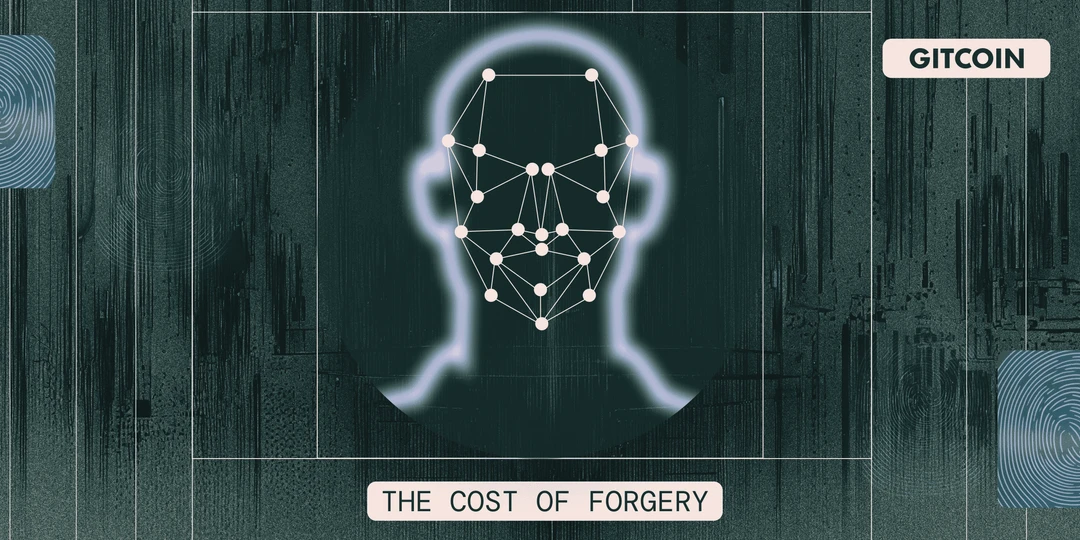Analyzing the potential risks of the TG BOT track from a domestic legal perspective
Analyzing risks of TG BOT from a domestic legal perspectiveSpeaking of plugin bots, it is very familiar to friends who surf various internet communities all year round. Through the technical frameworks of Telegram, Discord, Weibo, and even several large social apps in China, people are constantly developing bots with various practical functions. Recently, with the popularity of AI models such as GPT that use dialogue for interaction, bot developers on various platforms have also started to adopt this extremely “human-adaptive” interaction design approach, developing a series of bots with wide-ranging uses, high practicality, and low entry barriers. This has gradually developed into a hidden and highly promising niche field.
The wind originates from the ground, starting from the edge of the blue water, and the promising Crypto Bots invite you to once again embark on a feast on the cutting edge. Today, the Sa team will analyze the potential legal risks of this niche field of Crypto Bots from the perspective of Chinese law, not daring to map out the path of well-known development for our old friends, but striving to draw the regulatory red line that is currently untouchable for everyone.
01. What are Crypto Bots? Starting from the most popular trading Crypto Bots recently
What are Crypto Bots? In fact, not to mention Crypto Bots, even the concept of bots itself is vague and controversial. Leaving aside the technical characteristics and implementation paths of bots (the Sa team is not composed of professional technical personnel, so we will not analyze it from a technical perspective, and we welcome technical experts to communicate with us), in terms of user experience and function, the Sa team believes that it is a kind of “plugin bot” or a special type of DApp that is similar to traditional browser plugins but more intelligent and feature-rich.
- Vitalik’s Full Text on the Evolution of Ethereum in Singapore Ten Years of Ethereum and Current Challenges
- Weekly Selection | Market Weakness, TG BOT Track Has a Unique Landscape; MakerDAO Wants to ‘Defect’ from Ethereum; Lido Faces Centralization Doubts Again
- Understanding Zan, the latest Web3 brand of AntChain, in one article.
Bots themselves are neither a new concept nor a new thing. I believe that friends who have used a certain Weibo app (or “Little Black X”) know that although this social platform has many active users and rich high-quality content, it does not support users directly downloading and saving videos from other accounts. Therefore, if users want to download someone else’s video, they can generally only use methods such as screen recording to keep it. At this time, downloading bots came into being. As long as users enter the keyword for downloading bots in the video comment section, the bots can generate a high-definition video download link within a few seconds, which is extremely convenient.
The Sa team has noticed that since July 2023, a large number of Crypto Bots serving the currency circle and Web3 builders (i.e., bots dedicated to the currency circle, also known as “Web3 Bots”) have emerged and grown rapidly like mushrooms after rain. Although this blue ocean is still limited by the problem of insufficient public awareness and its overall size is small, these bots that are truly solving a large number of user needs should not be underestimated. Currently, trading Crypto Bots occupy the largest share, and the most eye-catching one is Unibot, which has recently experienced a large increase in token price.
Unibot is an open-source framework based on Telegram and deployed on the Telegram platform. It is a transactional Crypto Bots, similar to GPT and Midjurney, that provides users with convenient, efficient, and feature-rich on-chain trading services through conversational interaction. Users can directly command the Bots to complete on-chain token trading activities on Uniswap by sending messages on Telegram. In addition, Unibot can also provide users with useful services such as limit orders, copy trading, participating in new token sales, privacy trading, transaction protection, and monitoring reports of trading data across platforms. Ideally, if the functionality of Unibot is fully utilized, its power may even rival that of a professional quantitative trader.
According to data from third-party platforms, as of the end of August and the beginning of September, the cumulative trading volume of Unibot has reached nearly $300 million, with an average daily trading volume of about $4 million. The total number of users is about 140,000, and the number of daily active users is around 1,000. As one of the pioneers in the emerging field, Unibot can be considered to have performed well. Although it is not yet comparable to the giants in the industry, its overall development momentum is stable and positive.
02. How do Crypto Bots make money?
Based on the operation models of traditional bots and observations from the Sa sister team, the current profit models of Crypto Bots can be roughly divided into three types.
(1) Traditional membership fee model
This is easy to understand. Similar to users paying for specific features in other paid or free apps, users need to pay before they can use Crypto Bots. Currently, the prices of several Crypto Bots service providers operating under this model are roughly in the range of 0.05-0.1 ETH.
(2) Trading commission model
The Crypto Bots represented by Unibot mentioned earlier adopt this profit model, where a direct commission of 1% is deducted from each transaction made by users (note that there is a usage fee for Uniswap transactions, and the commission is an independent charge on top of the usage fee). This high-fee, repeat-fee profit model is mainly designed based on Unibot’s token economic model considerations. Unibot will distribute 40% of the commission and transaction fees to its token holders, effectively reducing transaction costs and encouraging users to trade and hold its tokens.
(3) Comprehensive model
This profit model combines the above two models. Before Unibot rose to prominence with its impressive token economic model, the leading Crypto Bots in trading, such as Maestro, adopted this model. Currently, Maestro, as a relatively stable trading Crypto Bots, does not issue its own tokens and mainly achieves profitability through community-based operations.
03. Detailed explanation of the criminal legal risks of operating Crypto Bots in China, starting from trading Crypto Bots
As mentioned earlier, Crypto Bots, as a truly automated productivity tool that meets user needs, has vast development prospects and space. Taking transactional Crypto Bots represented by Unibot as an example, there are several significant legal risks and red lines.
(I) Money Laundering/Risk of Aiding and Abetting Criminal Activities
Providing users with privacy transaction services is a fundamental core feature of most transaction-oriented Crypto Bots. The Sa Team has previously explained in detail in previous articles the natural and inseparable connection between privacy transactions and money laundering crimes, as well as the strict regulations and crackdown measures taken by regulatory authorities around the world on privacy transaction tools (see “Xiao Sa Team | Another Founder in the Coin Circle Arrested, What “Original Sin” Did He Commit?”). Now, in my opinion, there is a taste of “braving the storm” in the privacy transaction tools in transaction-oriented Crypto Bots, especially now that the privacy transaction leader Tornado Cash has been blacklisted by the United States and its founder has been arrested, facing serious criminal charges. Continuing to provide privacy transaction services to users is a very unwise move.
In China, unless Bots can guarantee through technical means that only the trading parties can ensure transaction security and personal privacy through the tool, the privacy transaction tool is highly likely to be used as a tool for money laundering crimes. If such a situation occurs, the technical developers and service providers of transaction-oriented Crypto Bots may be implicated in money laundering crimes or aiding and abetting cybercrime activities.
(II) Risk of Organizing and Leading Pyramid Scheme Activities
If domestic Web3 builders completely replicate the operation mode of the Unibot project, it will create serious criminal risks, primarily because the token economic model of the Unibot project itself has serious compliance issues under Chinese law. As mentioned earlier, ordinary non-token-holding users who use Unibot’s services incur high transaction costs. However, if users hold the tokens issued by Unibot at this time, they can effectively reduce transaction costs by obtaining “dividends”.
In addition, Unibot has designed a special “recruitment” income mechanism and quickly increased its market share, surpassing Maestro. Specifically, Unibot encourages users to obtain dynamic income by “recruiting” others. In addition to providing rewards for recruiting new members, Unibot also allows users to obtain commission sharing from the transactions generated by new users. This is a typical “compound” dynamic income.
Article 224(1) of our Criminal Law has made it clear: the crime of organizing and leading pyramid scheme activities refers to “the behavior of organizing and leading pyramid scheme activities that deceive and coerce participants to continue to develop others to participate, deceive property, and disrupt the economic and social order, under the name of promoting goods or providing services, requiring participants to pay fees or purchase goods, services, etc. to obtain membership qualifications, and forming a hierarchy in a certain order, directly or indirectly using the number of personnel developed as a basis for remuneration or rebates.”
The operating method adopted by the Unibot project undoubtedly increases market share and expands product visibility in a short period of time. However, this “pyramid scheme” that provides dynamic compound interest is prone to be recognized by regulatory and judicial authorities as “reward or rebate based on the number of recruits directly or indirectly” and this recruitment model can easily surpass more than three levels. Under Chinese law, it is highly likely to pose a risk of organizing and leading pyramid schemes. The Unibot team advises against replicating such “successful experiences” in operating similar projects in China.
(III) Risk of Illegal Business Operation
Illegal business operation is one of the main red lines for operating and expanding transactional Crypto Bots in our country, which is reflected in two aspects: (1) illegal issuance of coins (ICO); (2) engaging in fund payment and settlement business without approval from relevant national regulatory authorities.
Regarding the risk of illegal issuance of coins (ICO), it should be very familiar to cryptocurrency enthusiasts. The “Announcement on Preventing Risks of Token Issuance Financing” (referred to as the “9.4 Announcement”) in 2017 and the “Notice on Further Preventing and Dealing with Speculative Risks of Virtual Currency Trading” (referred to as the “9.24 Notice”) in 2021 have made it clear: illegal issuance of coins is prohibited in mainland China, and related virtual currency businesses are considered illegal financial activities.
Although transactional Crypto Bots are automated trading tools, they do not fall within the scope of “technological neutrality” exempted by Chinese law. Therefore, if transactional Crypto Bots engage in fund payment and settlement business without approval from relevant national regulatory authorities, they may be suspected of illegal business operation. In practice, obtaining a payment license is very difficult, and considering cooperation with licensed third-party payment institutions may be a way for transactional Crypto Bots to expand in China. However, the Unibot team advises against considering the issuance of coins or disguised issuance of coins, and suggests considering issuing points as an alternative, under the premise of compliance construction.
04, Conclusion
In fact, Crypto Bots is a very large market with various subdivisions, each with different legal risks. Although transactional Crypto Bots currently dominate the market share, they are just one type among many Crypto Bots. As of now, the Unibot team has observed that “functional Crypto Bots” (providing users with functional services such as market data analysis, account transaction tracking, community management, cross-chain, etc.) and “AI Crypto Bots” (providing users with services such as smart contract drafting, auditing, NFT creation, blockchain security testing, etc.) are also rapidly developing and representative products in their respective fields have gradually emerged, such as ChainGPT in the field of AI Crypto Bots.
The Unibot team believes that if domestic Web3 builders want to enter the transactional Crypto Bots field, which currently has the highest return on investment, is the most profitable, and has a first-mover advantage, they must dance on the edge of a knife. It is necessary to hire professional legal professionals to ensure full compliance with the entire business process and make preparations before taking action. If intending to compete in the field of functional or AI Crypto Bots, attention must be paid to compliance issues in the data field to avoid legal risks in the early stages of the project. The Unibot team will continue to pay attention to the relevant industry and provide timely updates for everyone.
This is an empty paragraph with bold formatting.
We will continue to update Blocking; if you have any questions or suggestions, please contact us!
Was this article helpful?
93 out of 132 found this helpful
Related articles
- Flashbots Research Report A Beam of Light for MEV, Piercing the Dark Ethereum Night Sky
- Cartridge A new player in the gaming industry, advancing together with infrastructure and game development.
- Interpretation of the ‘Tokenization of Hong Kong Bonds’ Report Using Evergreen ‘Green Bonds’ as an Example, Reviewing the Theory and Practice of Bond Tokenization.
- Blockworks From the Blockchain Impossible Triangle to the Big Convergence
- Beyond Ethereum – Third Generation Blockchain Will Drive Mass Adoption
- MakerDAO chooses Solana as the application chain? It’s too early to draw a conclusion, at least 3 years are needed to achieve it.
- Arbitrum vs. Optimism A new round of Red vs. Blue battle begins with Layer3.






